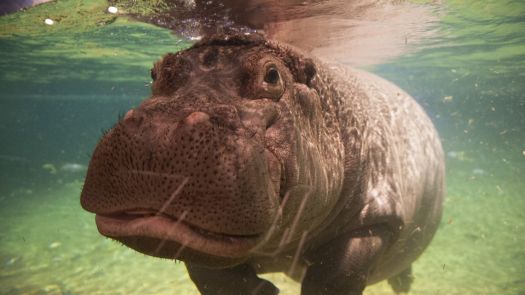You suggest this to a Christian, and right away they balk. I told several friends that I was writing on this topic, and they brushed it off as some dumb thing Plato came up with out of no where. I beg to differ; Christians can label God as the Soul of the world without being pantheistic. It’s all a matter of terms – and some hard thinking. It requires you to think not just of the physical, and to keep the witness of Scripture in the back of your mind as you look at the world around you.
WORLD
What do we mean by world? Usually when we say “the world”, we tend to think just of our planet Earth, but this sense of “the world” is too minuscule. If God is the soul of the world, the world must be all of creation – the universe. Our English word “universe” comes from the Latin-based French, and the French word was not in use until the thirteenth century, when it meant “all of creation”. (See the use of this word throughout the centuries here.) I urge you to think not just of physical creation when you think of the world, but to include all of spiritual creation as well, combining the seen with the unseen, “whether thrones or dominions or rulers or authorities” (Col. 1:16) Doesn’t this give you a whole knew perspective of the supposed Christmas carol, “Joy to the World” (which was actually written about Christ’s second coming)! The world, or universe, contains all of space and time.
SOUL
What is a soul? A soul is defined as (1) the spiritual or immaterial, immortal part of a human being or animal, and (2) the essence or embodiment of a specified quality, particularly used to denote a person’s individual personality. The soul gives the body life. A body is separate from a soul in many ways. The soul gives life to the body and the body supports the soul, allowing it to move around.
Plato labeled the soul as a thing begotten by the the Divine Being. In Timaeus, Plato explains that the soul of the world extended throughout the entire body of the universe and was the most excellent of all the things begotten. He says a lot of things about the soul, but to recount them here would evade my purpose.
GOD
God is spiritual, not physical – incorporeal, if you will. Even Jesus Christ, the Son, has a glorified body that is not like our bodies in the present earthly state. Because God is omnipresent, he is not contained within the world, but why should He operate the same way our souls and bodies do? At any rate, my soul is not as limited by my body as one might think. He can be the soul of the world, giving it life, without being limited by the physical bounds of the world. Through Christ, the Father made all things. Now, the soul does not make the body, but the soul gives life to the body in both instances. For God, the Soul-Body dichotomy works in reverse: the soul is understood to be pervading every piece of creation instead of the soul being physically bound by the body.
What does the Bible say? Throughout the Hebrew scriptures we are told that God is the supreme creator and sustainer of the world. We do not see any direct commentary on this question until the New Testament, in Paul’s sermons and letters.
“The God who made the world and everything in it, being Lord of heaven and earth, does not live in temples made by man, nor is he served by human hands, as though he needed anything, since he himself gives to all mankind life and breath and everything. And he made from one man every nation of mankind to live on all the face of the earth, having determined allotted periods and the boundaries of their dwelling place, that they should seek God, in the hope that they might feel their way toward him and find him. Yet he is actually not far from each of us, for ‘In him we live and move and have our being,’ as even some of your own poets have said, ‘For we are indeed his offspring.'” (Acts 17:24-28)
“For his invisible attributes, namely, his eternal power and divine nature, have been clearly perceived, ever since the creation of the world, in the things that have been made. . .” (Romans 1:20)
Paul seems to say that God dwells in the world without being physically perceived. Coming from that, we could say that God is the soul of the world, because He rules the world without being seen with human eyes, but yet seen through His work. Similarly, we do not see a soul but can learn about a person’s soul by studying what they have said, created, and done. Instead of rejecting this question, we should instead seek God’s wisdom in this, studying Scripture alongside the book of Nature, allowing God to use the things and people around us to reveal to us more about Himself.




